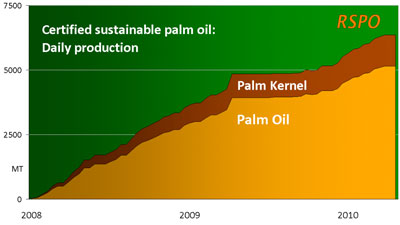Green Living
 CDMay2006
member
CDMay2006
member
Dear Community,
Our tech team has launched updates to The Nest today. As a result of these updates, members of the Nest Community will need to change their password in order to continue participating in the community. In addition, The Nest community member's avatars will be replaced with generic default avatars. If you wish to revert to your original avatar, you will need to re-upload it via The Nest.
If you have questions about this, please email help@theknot.com.
Thank you.
Note: This only affects The Nest's community members and will not affect members on The Bump or The Knot.
Our tech team has launched updates to The Nest today. As a result of these updates, members of the Nest Community will need to change their password in order to continue participating in the community. In addition, The Nest community member's avatars will be replaced with generic default avatars. If you wish to revert to your original avatar, you will need to re-upload it via The Nest.
If you have questions about this, please email help@theknot.com.
Thank you.
Note: This only affects The Nest's community members and will not affect members on The Bump or The Knot.
Sustainable Palm Oil
in Green Living
Article on sugregated certified sustainable palm oil, now available in the US: http://news.mongabay.com/2010/0629-rspo_usa.html
Orangutans and Malayan Tapirs thank you : )





Re: Sustainable Palm Oil
Greener palm oil arrives in the United States
mongabay.com
June 29, 2010
The first shipment of palm oil certified under sustainability criteria have arrived in the United States, according to the Roundtable on Sustainable Palm Oil (RSPO).
 The RSPO also announced that daily production of CSPO has now surpassed 5,000 metric tons per day. Since late 2008 more than 2.2 million tons of certified palm oil and 600,000 tons of certified palm kernals have been produced. About 600,000 tons of CSPO and kernals has been sold?mostly in Europe?so far in 2010.
The RSPO also announced that daily production of CSPO has now surpassed 5,000 metric tons per day. Since late 2008 more than 2.2 million tons of certified palm oil and 600,000 tons of certified palm kernals have been produced. About 600,000 tons of CSPO and kernals has been sold?mostly in Europe?so far in 2010.
AAK, a vegetable oils and fats manufacturer based in Malmo, Sweden, announced the arrival of the first shipment of segregated RSPO-certified palm oil to its refinery in Port Newark, New Jersey. Segregated RSPO-certified palm oil has been kept separate from conventional palm oil throughout the supply chain. Most "sustainable" palm oil users don't actually use segregated certified sustainable palm oil (CSPO), Instead they offset conventional palm oil buy purchasing the equivalent amount of GreenPalm certificates, which represent real CSPO sold elsewhere as conventional palm oil.
Global palm oil consumption stands at nearly 50 million tons per year, about half of which is traded internationally. It is used widely in processed foods, cosmetics, and soaps ? WWF estimates that palm oil is found in roughly half of packaged supermarket products. It is also increasingly used as a biofuel.
But while palm oil is a highly efficient crop, surging production over the past 20 years has spurred strong backlash from environmentalists who not that expansion has consumed vast areas of rainforest in Malaysia and Indonesia, triggering massive greenhouse gas emissions and putting endangered wildlife?including orangutans, pygmy elephants, Sumatran rhinos and tigers?at risk. Oil palm plantation development has also exacerbated social conflict in some areas.
The RSPO emerged as a response to these concerns. The body?which includes industry stakeholders as well as environmentalists and other groups?sets sustainability criteria for palm oil production. Nevertheless the initiative has been battered over the past year with revelations that some members have continued to destroy ecologically sensitive habitats. Prominent members, including Unilever and Nestle, have had to act outside the RSPO process to address misconduct by RSPO-member suppliers. Some critics say the scheme lacks oversight, sets a low bar for compliance, and is underfunded. Supporters argue that RSPO is still a relatively new initiative that needs more time to prove itself.
Best sound ever: baby's heartbeat! (Heard @ 10w1d)